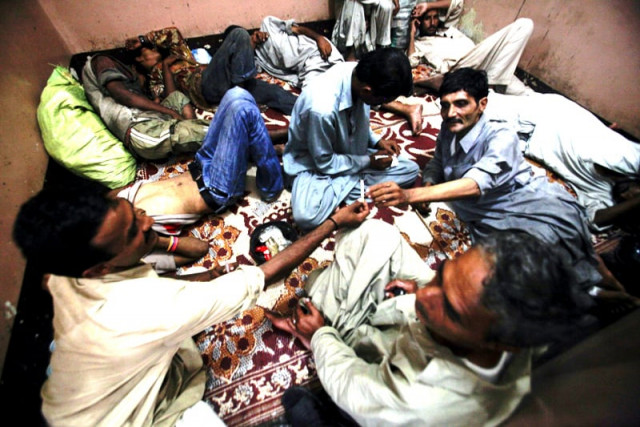The drugs problem
As with so much else that ails the nation, the drug problem lacks a policy framework and supporting legislation

Only Rs4 a year is allocated for each drug addict in the federal budget. PHOTO: REUTERS

The Director General of the ANF, Major General Khawar Hanif, informed the Senate Standing Committee on Interior and Anti-Narcotics on July 6 that there was no “proper policy” for the maintenance of rehabilitation centres for drug addicts across the country. The same is true for alcohol abusers, who are also rising in number.
Drugs are big business. In the last 17 years, the ANF has seized a startling 11,365 tonnes of narcotics, nearly 669 tonnes every year. It is impossible to know what tonnage was missed by the ANF, but it is reasonable to assume that at least an equal amount may have got through the net. A tiny proportion of that tonnage finds its way into the domestic market. Nobody sets out in life to become a drug addict or substance abuser; it is a gradual process, though poverty and unemployment are regularly cited in international studies as to the reasons why people become addicted or substance abusers. Every country in the world has a drug problem, there are no exceptions. Pakistan has a particularly vulnerable population of poorly educated people under 30 years, primarily male, but there is a significant minority of females who are also vulnerable, especially sex workers. As with so much else that ails the nation, the drug problem lacks a policy framework and supporting legislation. And yes, these unhappy people are worth much more than just Rs4 a year.
Published in The Express Tribune, July 8th, 2015.
Like Opinion & Editorial on Facebook, follow @ETOpEd on Twitter to receive all updates on all our daily pieces.















COMMENTS
Comments are moderated and generally will be posted if they are on-topic and not abusive.
For more information, please see our Comments FAQ